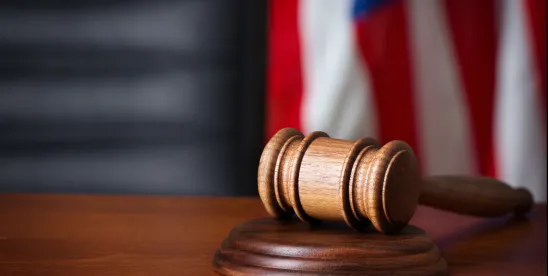As a young litigator, I was taught that there are certain rules of cross-examination not to violate: (1) ask only leading questions; (2) refrain from asking “one question too many,” (3) stick to one fact per question; and (4) never ask the “why” question. Although as a general practice, following these rules is generally wise, there are times when rules can or should be broken. Let’s take the example of never asking “why.”
For this article, I performed a quick google search to find notable trial lawyers who advocate for asking “why” question on cross. The admittedly unscientific results showed that most argue against this approach. This is not surprising. The risk of asking “why” on cross is you give the adverse witness the chance to explain away his or her seemingly unreasonable actions and/or statements. Worse still, the witness may include in his or her answer a statement damaging to your case. However, if you can eliminate the risk of a bad answer (and you sometimes can), “why” questions on cross examination can be quite effective.
One notable critic of the rule against asking “why” on cross was the late, great Vincent Bugliosi. Bugliosi, the best-selling author and famed prosecutor, “consistently violated this well-recognized maxim of cross-examination.”[1] His thought process was that, if he felt a witness was lying, he would elicit on preliminary matters answers which in totality show that the witness would be expected to take a certain course of action. He would then ask the witness what course of action he actually took and follow up as to why the witness took the unreasonable course of action.[2] If you have properly foreclosed the possibility of a reasonable explanation, the witness will be forced to give an answer that the jury will not believe or simply throw up his or her hands and say, “I don’t know.”[3]
Further, the “why” question will likely be asked on re-direct by opposing counsel, oftentimes after a break, when the witness will be able to craft his best answer to the question. By forcing the witness to answer on cross, you deny him or her that opportunity.
Bugliosi believed that “the ‘why’ question is one of the very best techniques to destroy credibility.”[4] This makes sense intuitively. If a witness cannot adequately explain why he or she took an unreasonable action, the jury will likely find that testimony not credible. As opposed to the conventional advice to “save it for closing,” the witness has already testified – unsatisfactorily – as to why he or she took the unreasonable action(s) he or she allegedly took. If you have correctly utilized this approach, the answer to the why question will show that the witness is not to be believed.
While I do not often ask “why” on cross-examination, I have done so on several occasions. For example, in a civil case, the plaintiff alleged my client caused him emotional distress when he allegedly assaulted him. In plaintiff’s answers to interrogatories – served 21 months after the alleged incident – he alleged for the first time that my client threatened to stab him. On cross-examination, I established through preliminary questions that, among other things, he:
- Filed a police report after the incident;
- Spoke to a detective shortly after he filed the police report;
- Wrote a narrative describing the events in the weeks following the incident; and
- Wrote a victim witness impact statement for the underlying criminal case.
I then went through each of these and got him to admit that he never mentioned to anyone that my client had threatened to stab him. After laying this groundwork, I asked him why he never mentioned the threat. His answer was “I don’t remember.” This, of course, explained nothing and greatly hurt his credibility.
If you do plan to use “why” questions on cross-examination, ensure that you think about every possible reasonable explanation the witness could utilize. Talk to colleagues and get their thoughts. Also, ensure you use preliminary questions to block all potential escape hatches. As F. Lee Bailey wrote, “The most common error lawyers make on cross-examination is immediately attacking a witness who has not been sufficiently pinioned. The result is that the witness escapes.”[5]
Whether to utilize “why” questions on cross-examination is your call. However, do not dismiss the approach out of hand just because others say you should. After all, sometimes rules are meant to be broken.
[1] Vincent Bugliosi, Trial Tactics in a Complex Case, 2 Campbell L. Rev. 93, 101 (1980)
[2] Id.
[3] For an excellent demonstration of Attorney Bugliosi’s approach, see Id. at 102-103.
[4] Id. at 104
[5] Id. at 101




 />i
/>i

